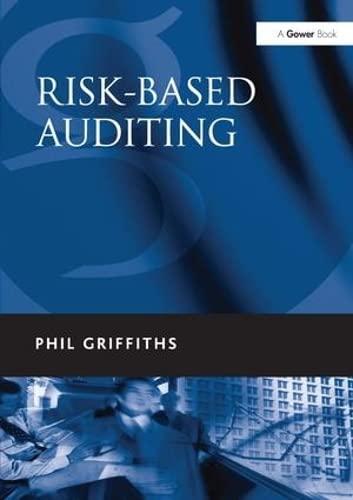Question
II. Corridor approach (amortization of net gains and losses.) Gibbs Company has 200 employees who are expected to receive benefits under the company's defined-benefit pension
II. Corridor approach (amortization of net gains and losses.) Gibbs Company has 200 employees who are expected to receive benefits under the company's defined-benefit pension plan. The total number of service-years of these employees is 2,000. The actuary for the company's pension plan calculated the following net gains and losses:
For the Year Ended
December 31 Gain Or Loss
2016 $ 640,000 Gain
2017 554,000 Loss
2018 990,000 Loss
Prior to 2016, there was no unrecognized net gain or loss. Information about the company's projected benefit obligation and fair value of plan assets follows:
As of January 1
2016 2017 2018
Projected benefit obligation $2,100,000 $2,340,000 $2,940,000
Fair value of plan assets 1,680,000 2,460,000 2,550,000
Instructions
Based on the above information about Gibbs Company, prepare a schedule which reflects the amount of net gain or loss to be amortized by the company as a component of pension expense for the years 2016, 2017, and 2018. The company amortizes net gains or losses using the straight-line method over the average service life of participating employees.
III. Comprehensive Pension Problem
Given the following pension reconciliation from the financial statement notes of Company P at December 31, 2016:
Projected benefit obligation $ 330,000
Fair value of plan assets 270,000
Also, the following amounts are reported in Other Comprehensive Income in the 2016 Statement of Stockholders Equity:
Unamortized prior service cost 90,000 debit
Unrecognized net loss 39,000 debit
Additional information for 2017:
1. Service costs for 2017 were calculated to be $45,000.
2. The settlement rate (for interest cost) on the PBO was 7%.
3. The expected return on the plan assets was 8%.
4. During 2017, Company P contributed $125,000 to the plan.
5. The prior service costs are being amortized over the remaining years of service of 5 years.
6. The average remaining service life for amortizing unrecognized gains and losses (after application of the corridor) is 10 years.
7. The pension plan paid benefits to retirees totaling $44,000 during 2017.
8. The actuary calculated the following balances at the end of 2017:
PBO = $ 363,800
FVPA = 370,000
From the information above, complete on the answer sheet: (1) the Pension Schedules, (2) the journal entry for 2017, and (3) the T-accounts. Include proper titles for each of the missing items in the pension schedules. Abbreviations are acceptable, both here, and on the exam.
ANSWER SHEET BELOW
II. Corridor Approach. Show your calculations below, in good form, including your calculation of the amortized amount each year and the calculation of the balance in net gain or loss at the end of each year. Be sure to indicate gain or loss where appropriate.
2016 Beginning ______________________________
Amortization ______________________________
New G/L ______________________________
2017 Beginning ______________________________
Amortization ______________________________
New G/L ______________________________
2018 Beginning ______________________________
Amortization ______________________________
New G/L ______________________________
2019 Beginning ______________________________
III. Comprehensive Pension Problem
Pension Expense Components:
__________________ ___________
__________________ ___________
__________________ ___________
__________________ ___________
__________________ ___________
Pension Expense ___________
PBO FVPA
Beginning ___________ Beginning ___________
_____________ ___________ ______________ ___________
_____________ ___________ ______________ ___________
_____________ ___________ ______________ ___________
=End. Unadjusted ___________ =Ending Unadjusted ___________
______________ ___________ _______________ ___________
= Ending Reported ___________ =Ending Reported ___________
Journal Entry:
Ending Balances:
Pension Asset Liab. OCI U PSC OCI-U Net G/L
Step by Step Solution
There are 3 Steps involved in it
Step: 1

Get Instant Access to Expert-Tailored Solutions
See step-by-step solutions with expert insights and AI powered tools for academic success
Step: 2

Step: 3

Ace Your Homework with AI
Get the answers you need in no time with our AI-driven, step-by-step assistance
Get Started


